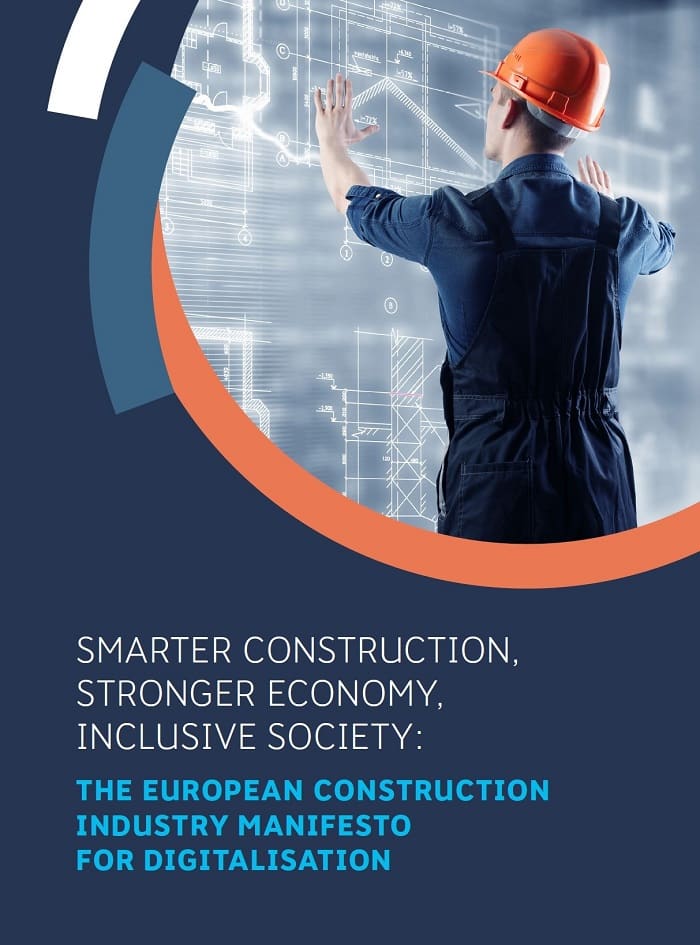CECE and most of the major European construction industry associations have joined forces to draft and agree on “The European Construction Industry Manifesto for Digitalisation”, which is released today. The Manifesto calls for strong political leadership from the EU, an appropriate regulatory framework on data policy and budgetary focus on digital skills, R&D and IT infrastructure.
The construction industry can help build a stronger economy and an inclusive society by sustaining its competitiveness on the global stage. Speaking on the Manifesto, CECE Secretary General Riccardo Viaggi said:
“Digitalisation of the construction equipment sector has been a key priority for CECE. We recognise the importance of working in a value chain approach and, as the Manifesto reads, all industry representatives pledge to collaborate intensively, to lead and support the industry in order to enable a successful digital transformation of the construction industry”
Priority for EU political agenda
The European Construction Industry Manifesto for Digitalisation underlines the importance of an effective regulation to ensure sector’s competitiveness and adoption of the digital transformation.
“European construction industry is already adjusting to the digital transformation, however the support from the EU policymakers is crucial”
concluded Viaggi.
An appropriate regulatory and financial framework at the European level is needed to enhance the forward-looking strategy. The policy makers need to prioritize this initiative within Horizon Europe, which will follow the Horizon 2020 framework. Anticipating its new focus, the construction sector uniting its voice urges the European Commission to focus the framework programme on digitizing Europe’s construction sector to strengthen its industrial competitiveness and global leadership.
Digitalisation fundamental to EU policy goals
To remain competitive, the European Union must transform itself digitally. Construction sector being an integral part of the European economy – 8.9% of GDP and more than 14 million jobs overall – must embrace the digital transformation across the entire value chain. Digitalisation of the construction industry responds to the sector’s main challenges such as lack of skilled workforce, energy efficiency, lagging productivity, sustainability and many others. Building on Europe’s strength in the field of engineering and design, a strong network facilitating transfer of knowledge, expertise and capabilities needs to be put in place at the European level.
Smarter Construction, Stronger Economy, Inclusive Society: The European Construction Industry Manifesto for Digitalisation can be found here.
Source: CECE Press
 Constructionshows
Constructionshows
